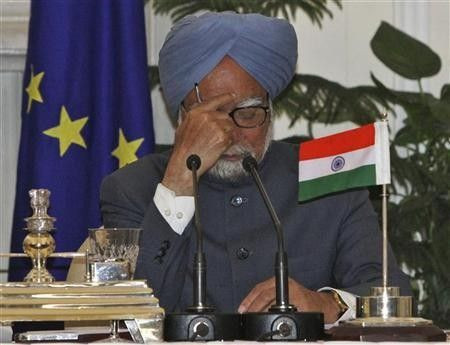India Warned Over Retroactive Tax Proposal, Jewelers Continue Strike

International trade groups are warning a proposal to let India's government retroactively tax foreign companies could discourage investment.
Seven groups, including the U.S.-based Business Roundtable, the Confederation of British Industry, the Japan Foreign Trade Council and Canadian Manufacturers & Exporters, wrote a Monday letter to Indian Prime Minister Manmohan Singh that the potential tax move has undermined confidence and created widespread reconsideration of the costs and benefits of investing in India, Reuters reported.
The groups collectively represent around 250,000 companies. The Business Roundtable is led by James McNerney, chairman and CEO of Boeing Co. (NYSE:BA), and represents companies with more than $6 trillion in revenue.
British telecommunications company Vodafone Group Plc (London: VOD) had been embroiled in a five-year tax dispute with the Indian government, which had sought $2.2 billion in taxes after Vodafone bought Hutchison Whampoa Ltd.'s (Hong Kong: 0013) Indian assets in 2007. The case was dismissed in January, but the new tax push could affect recent deals made by companies including Kraft Foods Inc. (NYSE:KFT) and AT&T Inc. (NYSE:T).
We are concerned about the proposed budget measure, British finance minister George Osborne told reporters after a meeting with Singh. Not just because of its impact on one company, Vodafone, but because we think it might damage the overall climate for investment in India.
Separately, Indian jewelry makers said Monday they plan to continue refusing to buy gold in protest of a government plan to double the import duty on gold, along with the excise tax on unbranded jewelry and the tax on transactions of more than 200,000 rupees ($3,933). The strike has cut heavily into the imports of India, the world's largest buyer of bullion, with gold shipments estimated to have fallen up to 55 percent, according to Reuters.
The Indian government said in March it would examine its policy and consider removing the excise tax.
India has suffered a recent slowdown in its economic growth, with 6.1 percent annual growth in the December quarter, the weakest level in almost three years. It has sought to free up lending by lowering the reserve ratio of banks.
© Copyright IBTimes 2025. All rights reserved.





















